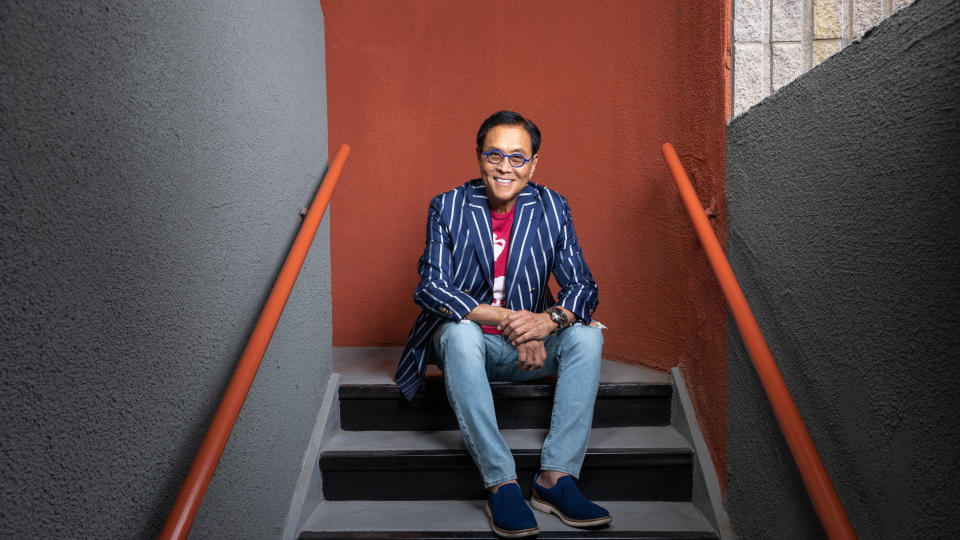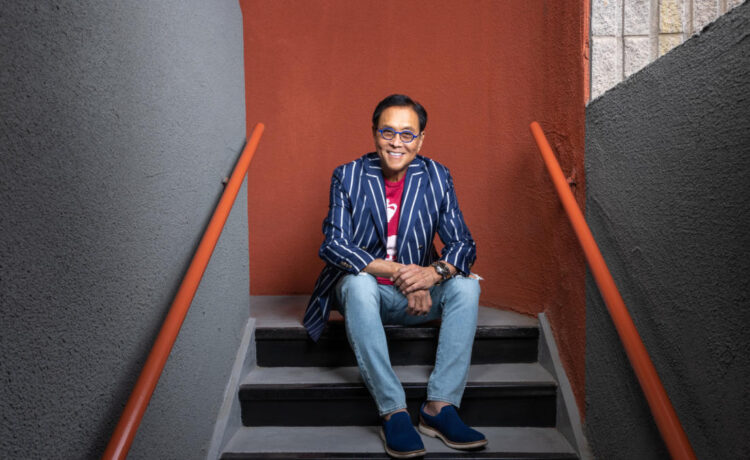
Robert Kiyosaki is a personal finance author and entrepreneur best known for his book “Rich Dad Poor Dad.” Now in his mid-70s, Kiyosaki cautioned that younger Americans face grave risk of Social Security failing to fund their eventual retirements. He adamantly warned that millennials cannot trust benefiting at all despite working careers paying into the system, per a Millennial Mindset and Investing YouTube video.
Find: Jaspreet Singh Says America’s Economy Is About To Get a Reality Check, Here’s Why
See Our List: 100 Most Influential Money Experts
Kiyosaki cited Social Security Administration projections showing trust fund depletion by 2035 absent major reforms. But he argued even 2035 seems overly optimistic. Kiyosaki pointed to factors exacerbating funding crises coming earlier as overwhelming baby boomer retirements stress already faltering finances.
Social Security Reserves Could Dry Up Before 2030
According to Kiyosaki, the Social Security Administration made projections expecting the system’s trust funds to reach depletion by 2035 without urgent changes. However, Kiyosaki sees this forecast as likely too conservative. He expects an even more imminent reckoning closer to 2030 based on his analysis.
Kiyosaki’s main evidence stems from the giant wave of baby boomers flooding Social Security rolls as they exit workforces en masse. This unprecedented tide of beneficiaries raises payouts beyond sustainable levels based on current payroll taxes and program revenues. Kiyosaki attributed boomers’ earlier and longer retirements to this accelerating depletion.
So while SSA models didn’t sufficiently account for boomers’ sheer numbers overwhelming the funds this decade, Kiyosaki warned they will accelerate drying reserves.
Also: 3 Ways To Recession-Proof Your Retirement
Initial Life Expectancy Forecasts Proved Way Off
In Kiyosaki’s view, another key mistake undermining Social Security’s viability was underestimating average retiree life expectancy upon launching benefits in the mid-1930s. When benefits system designers configured payment models originally, Kiyosaki noted that Americans’ average life span hovered around 62 years old.
This meant actuarial tables could reasonably expect most workers to contribute payroll taxes over decades in the workforce before claiming retirement benefits for a relatively short period later. But as longevity rose steadily throughout the 20th century, average American lifespans stretched decades further.
Kiyosaki highlighted that this change in longevity radically changed the math behind Social Security’s sustainability. With typical beneficiaries now surviving and collecting for 20-30 years, the system has become strained.
Not Enough Young Workers to Support Strained System
Kiyosaki further noted current worker-to-beneficiary ratios show another key disconnect between how Social Security was intended to function versus today’s reality. When launched in the mid-20th century, Social Security could depend on about 16 active workers’ continuous payroll taxes going towards each retiree’s benefits.
But given lower birth rates and longer lifespans, Kiyosaki warned that this ratio has plunged. He said current statistics show less than three workers pay into Social Security per retiree withdrawing benefits. Significant worker base declines make sustaining long-range payouts impossible, he argued.
Kiyosaki believes shrinking generations actively funding Social Security while demand grows severely imbalances the whole mechanism. He said the design itself relies on far higher worker-to-retiree ratios consistently feeding tax revenues relative to beneficiaries. If there aren’t major overhauls, Kiyosaki argued, this gap will seal the system’s demise.
While Social Security faces existential solvency threats in coming years, Kiyosaki said millennials don’t have the luxury of hoping for a last-minute solution materializing to save it. Instead, he insisted that millennials absolutely must take matters into their own hands and urgently begin saving for retirement independently.
Take Control By Creating Your Own Nest Egg
Given everything jeopardizing Social Security’s survival, Kiyosaki said millennials cannot passively wait for the same governmental benefits their parents or grandparents received. Despite working full careers actively funding Social Security through mandatory payroll taxes too, Kiyosaki stressed that millennials must assume they’ll receive absolutely no safety net in retirement from it.
He said that millennials must protect themselves by immediately establishing their own retirement investment accounts which they directly control. This might mean cutting costs where possible and continually dedicating those extra dollars into savings and mutual funds likely to grow over time.
More From GOBankingRates
This article originally appeared on GOBankingRates.com: Robert Kiyosaki: Why Millennials Shouldn’t Rely on Collecting Social Security














